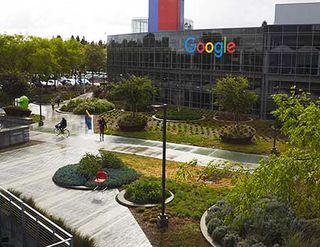Google Fiber Ended 2016 With 84,232 Pay TV Subs: Study

Google Fiber ended 2016 with 84,232 pay TV subs, marking a sharp decline in the rate of growth, MoffettNathanson found in an analysis based on fresh data from the U.S. Copyright Office.
Across all Google Fiber markets, year-on-year growth declined to 57.8%, from 78.8% a year ago, the firm found. But Google Fiber's video business is still growing amid a rising cord-cutting trend that is affecting most major U.S. pay TV providers.
RELATED: YouTube TV Emerging Amid Accelerating Cord-Cutting Trend
In a blog item published Monday (March 27), Craig Moffett, senior analyst at MoffettNathanson, acknowledged that the semiannual data from the copyright office “is completely blind to broadband, which is arguably Google Fiber’s more important line of business.”
Moffett added: “We would naturally prefer to have data on the broadband market, which, after all, was always Google’s principal aim. We rely on this data set only because it is the only one we’ve got. Perhaps their broadband results are better.”
Update: Google Fiber hasn’t released sub numbers, but a person familiar with its business noted that the unit did double its Internet subs in 2016 compared to all previous years combined that Google Fiber has been in business, and that Google Fiber has generally been seeing strong growth for Internet-only subs, including those that are coming way of Webpass, which is being offered in markets such as San Francisco, San Diego, Chicago, Miami and Boston. Webpass does not provide video service alongside its baseline high-speed Internet offering.
Even without any specific broadband subscriber results to go on, Moffett said Google Fiber’s video numbers still speak volumes about its efforts to make a mark in the broader pay TV industry.
“Seven years after breaking ground in their first broadband market, Google Fiber still accounts for only 0.1% of the U.S. Pay TV industry,” Moffett explained.
Among Google Fiber’s largest individual markets, MoffettNathanson found that the company ended 2016 with 45,096 video subs in its largest market, Kansas City, Mo., compared to 28,941 in Kansas City, Kan.; 5,889 in Austin, Texas; and 2,914 in Provo, Utah.
Google Fiber has been asked for comment on the new pay TV data. In September 2016, the last time this data emerged, Google Fiber said it was “very pleased” with its pay TV progress. Late last year, Google launched an updated Fiber TV App for Android and iOS devices that includes a new recommendation and other features. That followed an upgrade of the service’s TV interface.
Multichannel Newsletter
The smarter way to stay on top of the multichannel video marketplace. Sign up below.
RELATED: Google Fiber ‘Very Pleased’ with TV Sign-Ups
UPDATE: A Google Fiber spokesperson issued this statement amid the new pay TV numbers posted by MoffettNathenson: “We started Google Fiber to make the Internet better. Our super fast service is currently available to subscribers in 9 metropolitan areas, with 3 more under construction or planned. Demand for Fiber speed continues to grow, as more consumers move toward Over-the-top streaming and skinny TV offerings."
MoffettNathanson’s latest analysis of Google Fiber TV subscriber data comes amid a shift in strategy there. Of recent note, Google Fiber hit the pause button in targeted expansion markets as it continues to sign up customers in existing markets, and as it more aggressively pursues less expensive wireless technology options following its acquisition of Webpass. Gregory McCray was recently named CEO of Alphabet’s Access division, which includes Google Fiber.
RELATED: Google Fiber Pauses Expansion Plans, Laying Off Some Staff
The latest figures also come out as YouTube builds the groundwork for a new OTT TV service called YouTube TV that's slated to launch later this year with a package of 40-plus channels and a cloud DVR.
RELATED: YouTube Makes Virtual MVPD Play
Regardless how the new OTT service and a bigger focus on Webpass impacts Google Fiber going forward, the latest Copyright Office data suggests “that Google’s interest even in its existing markets has cooled considerably,” Moffett wrote, while also pointing to recent reports that Google Fiber issued refunds to some people in Kansas City who had signed up to get service after the company decided not to expand to their neighborhoods, at least for now.
“In order to focus our efforts and resources, we’ll be slowing construction in some areas until we can layer in the new deployment models we’re developing,” Google Fiber told The Kansas City Star, adding that it is looking to add customers in areas such as Raymore and central Overland Park.
